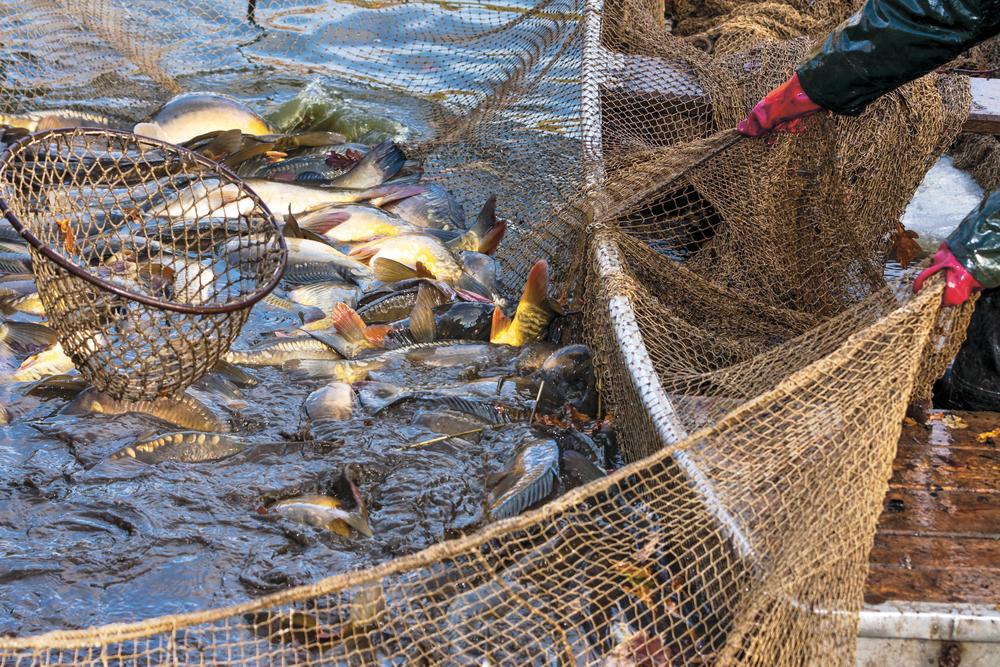Aquaculture Market Challenges: Overcoming Hurdles to Success

The aquaculture market, while about for significant growth, faces a range of challenges that could hinder its potential. As the demand for seafood increases and sustainability becomes paramount, stakeholders must navigate various hurdles to ensure the industry's long-term success. This article explores the key challenges in the aquaculture market and outlines strategies for overcoming them.
1. Environmental Concerns
Water Quality and Pollution
One of the most pressing challenges in aquaculture is maintaining water quality. Intensive farming practices can lead to pollution from excess feed, waste, and chemicals. This not only affects fish health but can also harm surrounding ecosystems.
Solution: Implementing advanced monitoring systems using IoT technology can help farmers track water quality in real time. Regular water testing and the use of effective waste management practices, such as biofilters and settling ponds, can mitigate pollution.
Disease Management
Disease outbreaks can devastate aquaculture operations, leading to significant financial losses and threatening food security. Pathogens can spread rapidly in densely populated farming conditions, making disease management critical.
Solution: Adopting biosecurity measures, such as controlling access to farms and implementing regular health checks, can reduce the risk of disease. Additionally, investing in research for vaccines and disease-resistant strains can help improve overall health management.
2. Regulatory Compliance
As aquaculture grows, so does the regulatory framework governing it. Compliance with local and international regulations can be complex and burdensome, especially for small-scale farmers.
Solution: Staying informed about evolving regulations and investing in training programs can help farmers navigate compliance requirements. Collaborating with industry associations can also provide valuable resources and support.
3. Sustainability Challenges
Overreliance on Wild Fish Stocks
Many aquaculture operations rely heavily on fishmeal and fish oil derived from wild fish stocks, which can contribute to overfishing and environmental degradation.
Solution: The development of alternative feed sources, such as insect meal, algae, and plant-based proteins, is crucial. Research and innovation in sustainable feed production can help reduce reliance on wild fish and lower costs.
Habitat Impact
Aquaculture operations, particularly those located in coastal areas, can impact local habitats and biodiversity.
Solution: Implementing sustainable farming practices, such as Integrated Multi-Trophic Aquaculture (IMTA), can promote biodiversity and minimize habitat disruption. Additionally, planning aquaculture sites carefully to avoid ecologically sensitive areas is essential.
4. Economic Viability
Market Competition
With the rising popularity of aquaculture, competition is intensifying among producers. Price pressures can affect profitability, especially for smaller operators.
Solution: Differentiating products through quality, sustainability certifications, and branding can help farmers gain a competitive edge. Investing in marketing strategies and direct-to-consumer sales channels can also enhance profitability.
Access to Financing
Access to capital is often a barrier for small-scale aquaculture farmers, limiting their ability to invest in technology and sustainable practices.
Solution: Exploring alternative financing options, such as microloans and grants, can provide the necessary funds for investment. Partnerships with NGOs and governmental organizations can also facilitate access to financial resources.
5. Consumer Awareness and Market Trends
As consumers become more environmentally conscious, they demand transparency regarding sourcing and production practices. This shift poses a challenge for aquaculture producers who may struggle to communicate their sustainability efforts effectively.
Solution: Building a strong narrative around sustainable practices and utilizing technology for traceability can enhance consumer trust. Engaging in educational campaigns to inform consumers about the benefits of sustainable aquaculture can also foster market growth.
- Art
- Causes
- Crafts
- Dance
- Drinks
- Film
- Fitness
- Food
- Games
- Gardening
- Health
- Home
- Literature
- Music
- Networking
- Other
- Party
- Religion
- Shopping
- Sports
- Theater
- Wellness


